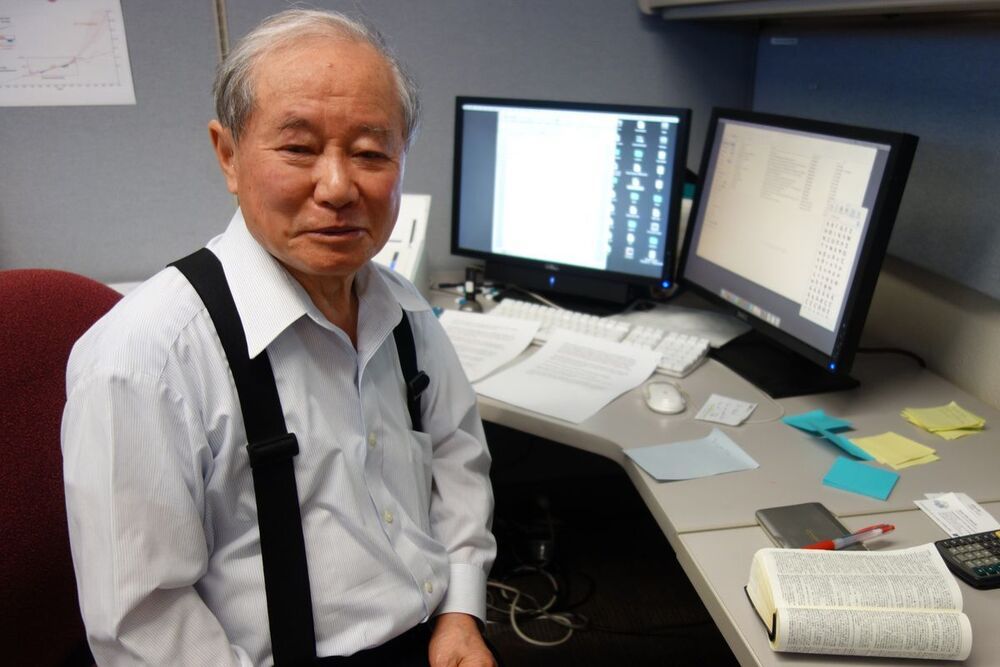Here, he became an authority on the aurora, and after that the director of the Geophysical Institute at the University of Alaska Fairbanks. He later used his reputation and connections to establish the International Arctic Research Center. His look-away-from-the-crowd nature once made a writer describe him as Alaska’s climate-change skeptic.
Wearing suspenders and a button-up dress shirt, Akasofu would — every weekday until the 2020 pandemic — drive 3 miles into the university for a few hours. His workspace is a cubicle in the Akasofu Building. That sun-catching, metal-and-glass structure on the highest part of the Fairbanks campus houses a science institute — the International Arctic Research Center — that would not exist without him.
Akasofu’s Alaska journey began when he wrote a letter to Sydney Chapman, a British space physicist who lived a reverse-snowbird existence, living in Fairbanks in the winter and Boulder, Colorado, in the summer.
